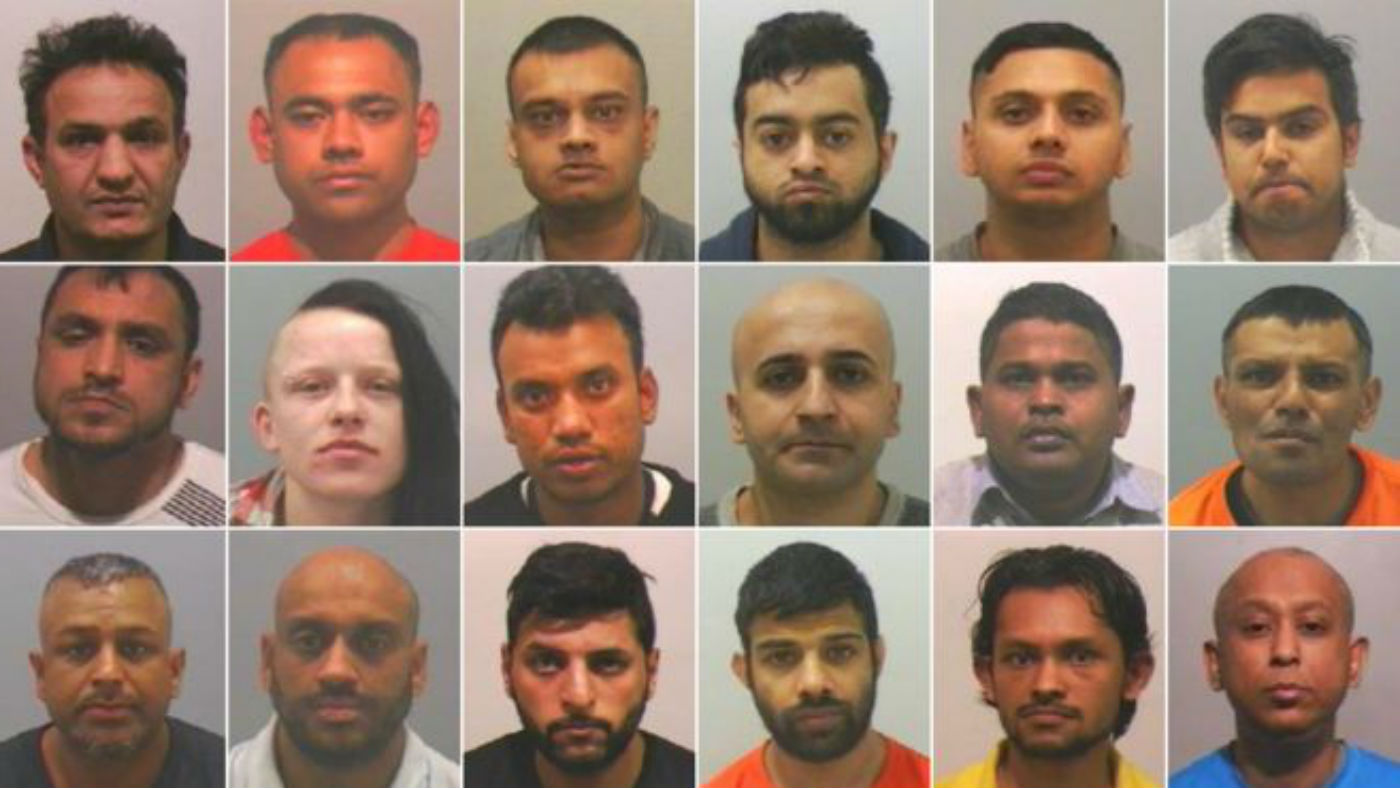Newcastle sex abuse ring: Eighteen guilty of grooming young girls
Victims as young as 13 given drugs and alcohol before being assaulted

A free daily email with the biggest news stories of the day – and the best features from TheWeek.com
You are now subscribed
Your newsletter sign-up was successful
Eighteen people have been found guilty of grooming young girls in Newcastle, plying them with drugs and alcohol before abusing them at "sex parties".
Seventeen men and one woman were convicted of nearly 100 offences, including rape, human trafficking, and conspiracy to incite prostitution and drug supply, between 2011 and 2014.
Over the course of four trials lasting more than two years, juries heard that more than 20 victims were befriended and lured to parties known as "sessions". There they were plied with drugs including cocaine, cannabis, mephedrone (also known as M-Kat) and alcohol before being sexually assaulted.
The Week
Escape your echo chamber. Get the facts behind the news, plus analysis from multiple perspectives.

Sign up for The Week's Free Newsletters
From our morning news briefing to a weekly Good News Newsletter, get the best of The Week delivered directly to your inbox.
From our morning news briefing to a weekly Good News Newsletter, get the best of The Week delivered directly to your inbox.
Prosecutor John Elvidge told Newcastle Crown Court the victims, all aged between 13 and 25, were targeted because they were vulnerable and "less likely to complain because of their circumstances".
He added they were "tricked into believing they were in the company of friends" and were "groomed and lulled into trusting those who would ultimately abuse them".
The BBC reports Northumbria Police's investigation - "Operation Sanctuary", which began in 2013 - remains "ongoing" and has resulted in 461 arrests. Police have spoken to 703 potential complainants and 278 victims have been identified.
Although the case has "clear similarities to grooming scandals in Rotherham and Rochdale, which featured gangs of British Asian men abusing white girls", the men convicted yesterday are from a wider range of backgrounds, including Bangladeshi, Pakistani, Indian, Iraqi, Iranian and Turkish, says The Guardian.
A free daily email with the biggest news stories of the day – and the best features from TheWeek.com
Due to the size of the investigation, the Crown Prosecution Service split the trials into a number of spin-off operations. Fears the jury could be influenced by publicity meant reporting was restricted until they finished yesterday.
However, progress was halted in October 2016, says ITV News, "when defence barristers tried to have the case thrown out over the existence of a police informant - known only as XY - who it emerged had a string of previous convictions, including drugging an under-age girl, raping her, and then inviting another man to do so afterwards".
Northumbria Police paid the informant almost £10,000 over 21 months to spy on the network and attend parties where victims were suspected of being abused. It has also been revealed that the jury did not hear evidence from the informant, a British-Asian man in his 30s with links to the defendants, after the judge described him as "inherently unreliable".
The Independent reports that "defending barristers argued that the public's confidence in the justice system would be undermined if the trials went ahead using intelligence from XY".
Children's charity the NSPCC said it was "appalled" to learn a former child rapist was deliberately placed among vulnerable girls, adding that "however good the force's intentions, their misguided actions run entirely counter to all current child protection procedures and what we know about sex offenders and could have compromised this investigation".
However, Northumbria Police Chief Constable Steve Ashman said although the decision to recruit XY would seem "morally repugnant to some", he would do the same again to gather vital evidence on people who are later convicted.